Non-Surgical Back Care and Spinal Support in Sri Petaling
At Chiropractic Specialty Center® (CSC) in Sri Petaling, we provide non-invasive solutions for individuals experiencing back discomfort. Many people struggle with stiffness, restricted movement, or postural imbalances due to prolonged sitting, repetitive strain, or physically demanding activities. Our center offers personalized chiropractic and physiotherapy-based rehabilitation programs designed to improve spinal health, posture, and flexibility.
By integrating advanced movement-based strategies, we help individuals restore mobility, enhance muscle balance, and support long-term spinal function. Our team focuses on addressing spinal concerns through non-surgical techniques, ensuring that individuals receive comprehensive care tailored to their movement needs.
For more details or to schedule a consultation, contact our Sri Petaling center at +603 9545 1200.

Comprehensive Spinal Support in Kuala Lumpur Using Advanced Methods
Chiropractic Specialty Center® provides non-surgical spinal support for individuals experiencing discomfort, stiffness, or movement restrictions. Our team in Kuala Lumpur offers personalized care programs designed to improve spinal function, enhance posture, and support long-term mobility. By integrating chiropractic techniques, physiotherapy, and targeted rehabilitation, we aim to assist individuals in achieving better spinal health.
Our centers utilize advanced rehabilitation technology, including:
- High-Intensity Laser Therapy (HILT)– A non-invasive light-based method designed to support soft tissue function.
- Spinal Decompression Techniques– A structured approach used to encourage spinal stability.
- Shockwave Technology– A targeted vibration-based method to support muscular and joint function.
- QMD Cryotherapy and Thermal Therapy– Temperature-based techniques aimed at supporting muscle and joint recovery.
Each method is tailored to individual needs, ensuring a comprehensive approach to spinal well-being.
For more details or to schedule a session, contact our Bukit Damansara, Sri Petaling, or Bandar Sri Damansara centers at +603 9545 1200.
Non-Surgical Approaches for Spinal Health in Kuala Lumpur & Selangor
Spinal discomfort can result from prolonged sitting, posture imbalances, repetitive movements, or underlying conditions affecting the spine and surrounding structures. At Chiropractic Specialty Center®, our team provides structured spinal care programs that address the root cause of discomfort.
We focus on:
- Postural misalignments– Poor posture can place uneven stress on the spine.
- Slipped discs– Changes in spinal disc position may contribute to movement restrictions.
- Joint stiffness– Limited spinal joint mobility can lead to muscular tightness.
- Sciatic-related concerns– Nerve compression may result in sensations in the lower body.
- Spinal changes due to aging– Structural adaptations over time may reduce flexibility.
Each individual receives a tailored rehabilitation program to support spinal stability and mobility.
For further details, contact our Sri Petaling center at +603 9545 1200.
Specialized Spinal Care in Kuala Lumpur & Selangor
Chiropractic Specialty Center® provides integrated chiropractic and physiotherapy techniques to support spinal function through non-surgical methods. We have seven locations offering structured spinal support, including:
Kuala Lumpur Centers:
- Bukit Damansara Center (Damansara Heights, Kuala Lumpur)
- Sri Petaling Center
- Bandar Sri Damansara Center
Selangor Centers:
- Petaling Jaya Center
- Shah Alam Center – Kota Kemuning
- Shah Alam Center – Setia Alam
- Bangi Center
Each location is equipped with advanced rehabilitation technology, ensuring targeted spinal support for improved movement and posture.
Non-Invasive Spinal Support for Long-Term Well-Being
At Chiropractic Specialty Center®, our care programs combine chiropractic techniques, physiotherapy, and movement-based rehabilitation to encourage spinal stability. We utilize evidence-based methods tailored to individual spinal needs, ensuring a structured approach to spinal health.
Some of the specialized methods available include:
- NSD Therapy®– A structured approach integrating spinal decompression technology.
- Spinal adjustments– Techniques to support spinal alignment.
- Flexion-distraction methods– Targeted movements designed to support disc health.
- Soft tissue mobilization– Hands-on techniques to support muscular function.
- Electrotherapy and ultrasound therapy– Non-invasive techniques for soft tissue recovery.
By combining various non-surgical methods, our team ensures a structured and holistic approach to spinal rehabilitation.
For more details, contact our Sri Petaling center at +603 9545 1200.
Comprehensive Spinal Support in Sri Petaling & Surrounding Areas
Chiropractic Specialty Center® provides personalized spinal care designed to improve movement, flexibility, and posture through non-invasive methods. Our Sri Petaling center is open seven days a week, ensuring accessible care for individuals in Puchong, Bukit Jalil, and surrounding areas.
For further details or to schedule an appointment, contact our Sri Petaling center at +603 9545 1200 or reach out via WhatsApp.
Understanding the Common Causes of Back Discomfort
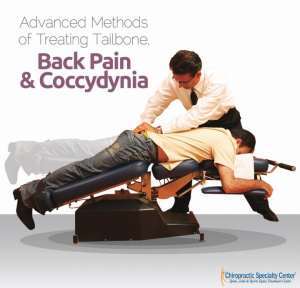
Many individuals experience back discomfort due to various lifestyle habits, physical activities, or underlying spinal concerns. Factors such as poor posture, prolonged sitting, sudden movements, or repetitive strain can contribute to stiffness and limited mobility. Additionally, spinal joint imbalances, muscle tension, and disc-related concerns may lead to restricted movement and postural changes over time.
Some common factors associated with back discomfort include:
- Spinal joint issues– Limited joint mobility may contribute to stiffness and movement restrictions.
- Disc-related concerns– Structural changes in spinal discs can affect flexibility.
- Soft tissue imbalances– Muscular tension and ligament strain may impact spinal alignment.
- Postural misalignments– Poor sitting and standing habits may create uneven spinal stress.
- Repetitive movements or injuries– Sudden lifting, slips, or falls may contribute to muscular and joint discomfort.
- Pregnancy-related changes– Postural adaptations due to weight distribution may impact spinal health.
By addressing early signs of discomfort, individuals can take proactive steps to maintain better movement and flexibility.
For more details, contact our Sri Petaling center at +603 9545 1200.
Why Back Discomfort May Be More Common in Women
Many women experience back discomfort due to hormonal fluctuations and postural adaptations. Hormones such as estrogen, relaxin, and progesterone influence ligament flexibility, which may contribute to spinal misalignments. Additionally, structural changes in the pelvic region and muscular imbalances may place uneven stress on the lower back.
Factors that may contribute to spinal discomfort in women include:
- Hormonal influences– Changes in hormone levels may affect joint and ligament flexibility.
- Postural changes– The structure of the pelvis may contribute to spinal stress.
- Pregnancy and postpartum adaptations– Weight shifts during pregnancy may affect spinal balance.
While back discomfort is common among women, addressing spinal health and postural alignment can help support long-term mobility and flexibility.
Common Causes of Chronic Back Discomfort
Chronic back discomfort often develops gradually due to long-term postural habits, repetitive movements, or undetected spinal imbalances. Many individuals may experience mild spinal discomfort that worsens over time, leading to reduced flexibility and movement restrictions.
Factors that may contribute to long-term spinal issues include:
- Prolonged sitting and poor posture– Remaining in one position for extended periods may affect spinal mobility.
- Repetitive physical activities– Engaging in repetitive movements may contribute to muscular tightness.
- Undetected spinal misalignments– Minor postural imbalances may lead to long-term stiffness.
- Age-related spinal changes– Over time, spinal flexibility may naturally decrease.
By addressing early signs of movement restrictions, individuals can maintain better spinal mobility and function.
For more details, contact our Bukit Damansara, Sri Petaling, or Bandar Sri Damansara centers.
What Can You Do for Spinal Discomfort?
If spinal discomfort persists, taking early action can help improve movement and posture. While mild discomfort may resolve with self-care techniques, structured rehabilitation may be beneficial for individuals experiencing persistent movement restrictions.
Self-Care Techniques for Mild Discomfort:
- Modify daily movements– Avoid prolonged sitting or repetitive bending.
- Incorporate posture-friendly habits– Maintain neutral spinal alignment when sitting or standing.
- Engage in structured movement exercises– Gentle exercises may encourage mobility.
- Apply cold therapy– Cooling methods may support soft tissue function.
If movement restrictions persist beyond 72 hours, seeking structured spinal support may be beneficial.
Encouraging Early Spinal Support for Long-Term Well-Being
Maintaining spinal health is essential for long-term mobility and daily function. Spinal concerns may arise from various factors, including postural imbalances, disc-related changes, and joint stiffness. Addressing early movement restrictions can support long-term flexibility and overall spinal well-being.
For further details, contact our Sri Petaling center at +603 9545 1200 or reach out via WhatsApp.
Non-Surgical Spinal Care for Long-Term Back Support

Chiropractic Specialty Center® provides personalized, non-surgical spinal support designed to encourage better movement, improve posture, and support long-term spinal health. Our team integrates chiropractic techniques, physiotherapy, and movement-based rehabilitation to create structured spinal care programs that promote flexibility and mobility.
Spinal discomfort often arises from muscle imbalances, joint stiffness, or disc-related concerns that affect posture and movement. Over time, these factors may contribute to restricted spinal mobility if left unaddressed. Our centers offer targeted spinal care to help individuals maintain movement and support spinal function through non-invasive methods.
For further details, contact our Sri Petaling center at +603 9545 1200.
Understanding the Causes of Spinal Discomfort
Many individuals experience stiffness, restricted movement, or postural imbalances due to sedentary habits, repetitive movements, or sudden lifting. Over time, these factors may create uneven spinal stress, leading to discomfort and reduced mobility.
Some of the common contributors to spinal discomfort include:
- Postural misalignments– Prolonged sitting or standing may place uneven stress on the spine.
- Disc-related concerns– Changes in spinal disc structure may lead to movement restrictions.
- Joint stiffness– Reduced spinal mobility may contribute to muscular imbalances.
- Repetitive movements or lifting– Excessive strain may result in muscular tightness.
- Pregnancy-related adaptations– Changes in weight distribution may impact spinal balance.
By addressing early signs of movement restrictions, individuals can support long-term spinal well-being.
The Importance of Comprehensive Spinal Support
Many individuals may experience recurring movement limitations when spinal concerns are not addressed early. While some may seek chiropractic adjustments or physiotherapy separately, an integrated approach combining both methods may provide more structured spinal support.
At Chiropractic Specialty Center®, we focus on:
- Chiropractic techniques– Encouraging spinal alignment through gentle adjustments.
- Physiotherapy techniques– Supporting muscular flexibility and soft tissue mobility.
- Advanced rehabilitation technology– Utilizing targeted methods to encourage spinal stability.
By integrating these specialized methods, we aim to help individuals achieve better movement and spinal function.
For more details, contact our Bukit Damansara, Sri Petaling, or Bandar Sri Damansara centers.
How Spinal Discs Affect Mobility
Spinal discs act as natural cushions between the bones of the spine, allowing for flexibility and movement. Over time, factors such as postural imbalances, repetitive movements, or disc-related changes may affect spinal mobility.
Each region of the spine contains discs that contribute to movement:
- Neck region (cervical spine)– Supports head movement and posture.
- Upper and mid-back (thoracic spine)– Provides structural support for the rib cage.
- Lower back (lumbar spine)– Enables flexibility and weight distribution.
By ensuring early detection of spinal changes, individuals can support long-term spinal mobility and posture.
For further details, contact our Sri Petaling center at +603 9545 1200.
Prioritizing Spinal Health for Long-Term Well-Being
Maintaining spinal health is essential for long-term mobility and daily function. Many individuals may experience spinal discomfort, joint stiffness, or movement restrictions due to lifestyle habits, postural imbalances, or underlying spinal changes. Addressing spinal concerns early can support flexibility and encourage better movement over time.
At Chiropractic Specialty Center®, we provide structured spinal care programs tailored to support:
- Spinal joint mobility– Encouraging better posture and flexibility.
- Disc-related concerns– Addressing movement limitations caused by disc changes.
- Soft tissue balance– Supporting muscular and ligament flexibility.
- Postural alignment– Encouraging balanced weight distribution on the spine.
By focusing on movement-based rehabilitation and non-surgical spinal support, individuals can take proactive steps toward maintaining spinal well-being.
For more details, contact our Sri Petaling center at +603 9545 1200.
Understanding the Importance of Spinal Disc Health
Spinal discs play a crucial role in cushioning the vertebrae and supporting spinal movement. Over time, postural habits, repetitive strain, or prolonged sitting may contribute to structural changes within the spinal discs. Early signs of disc-related concerns may include joint stiffness, muscular tension, or restricted movement.
Some of the early indicators of spinal changes may include:
- Changes in disc hydration– Natural adaptations may affect flexibility.
- Mild postural imbalances– Uneven weight distribution may impact spinal function.
- Soft tissue adaptations– Ligament and muscular changes may contribute to stiffness.
- Occasional movement restrictions– Changes in spinal mobility may affect daily function.
By addressing spinal movement limitations early, individuals can support long-term posture and flexibility.
For further details, contact our Bukit Damansara, Sri Petaling, or Bandar Sri Damansara centers.
Encouraging Early Spinal Support for Lasting Mobility
Many individuals may experience gradual spinal changes over time, leading to reduced flexibility and movement efficiency. While minor movement restrictions may seem temporary, consistent postural imbalances may contribute to long-term spinal concerns if left unaddressed.
Some of the common factors influencing spinal mobility include:
- Prolonged sitting and sedentary habits– Remaining in one position for extended periods may contribute to stiffness.
- Repetitive physical strain– Engaging in repetitive movements may affect muscular balance.
- Gradual spinal adaptations– Over time, changes in movement patterns may impact posture.
By taking early action, individuals can encourage better movement and spinal function.
For more details, contact our Sri Petaling center at +603 9545 1200.
The Role of Rehabilitation and Movement-Based Care in Spinal Health
Supporting spinal health requires more than just symptom management. At Chiropractic Specialty Center®, we emphasize comprehensive rehabilitation to ensure long-term movement efficiency and postural stability. Many individuals experiencing spinal discomfort, postural imbalances, or disc-related concerns may benefit from structured movement-based programs designed to encourage muscular coordination and spinal flexibility.
Rehabilitation plays a crucial role in:
- Encouraging muscular strength– Supporting spinal alignment through targeted movement.
- Enhancing postural awareness– Reducing mechanical strain on spinal structures.
- Improving movement efficiency– Encouraging long-term mobility through structured programs.
At our centers, we integrate physiotherapy techniques, chiropractic methods, and spinal decompression approaches to provide a structured rehabilitation framework for individuals seeking non-surgical spinal support.
How Rehabilitation Supports Spinal Function
Many individuals may experience gradual changes in movement efficiency due to postural adaptations, repetitive movements, or underlying spinal conditions. Through rehabilitation programs, individuals can take proactive steps to maintain long-term spinal mobility and function.
Our rehabilitation programs focus on:
- Posture correction exercises– Encouraging neutral spinal alignment in daily movements.
- Core stabilization techniques– Supporting spinal balance through targeted movement.
- Guided flexibility routines– Encouraging long-term movement efficiency.
- Soft tissue mobilization methods– Supporting muscular relaxation and joint function.
By incorporating rehabilitation and movement-based strategies, individuals may experience better postural stability and spinal coordination over time.
For more details, contact our Sri Petaling center at +603 9545 1200.
Non-Surgical Spinal Decompression for Targeted Spinal Support
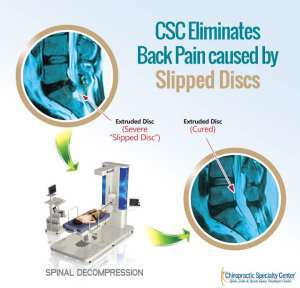
At Chiropractic Specialty Center®, we integrate non-invasive spinal decompression techniques designed to encourage better spinal stability and movement. Our centers utilize RxDecom® technology, a structured decompression method aimed at supporting spinal function.
The spinal decompression process involves:
- Targeted decompression techniques– Supporting spinal movement through controlled traction.
- Encouraging spinal flexibility– Reducing mechanical restrictions in spinal joints.
- Enhancing soft tissue support– Encouraging muscular relaxation and ligament mobility.
- Facilitating natural spinal recovery– Promoting structural balance over time.
By incorporating structured spinal decompression, individuals can support long-term movement and posture through non-surgical methods.
For further details, contact our Sri Petaling center at +603 9545 1200 or reach out via WhatsApp.
Flexion-Distraction Techniques for Spinal Support in Kuala Lumpur
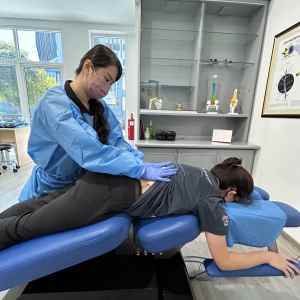
Flexion-distraction techniques, also known as Cox Technic, are specialized methods designed to support spinal mobility and joint function. These techniques focus on encouraging gentle spinal movement to support flexibility and improve posture. Many individuals experiencing spinal joint stiffness, disc-related concerns, or postural misalignments may benefit from structured spinal support.
During flexion-distraction techniques, individuals lie comfortably on a specialized table designed to encourage gentle spinal movement. A trained provider applies controlled adjustments that create a rhythmic stretching motion, supporting spinal flexibility.
Some of the potential benefits of flexion-distraction techniques include:
- Encouraging spinal decompression– Supporting mobility by reducing mechanical restrictions.
- Enhancing joint flexibility– Encouraging movement efficiency and posture.
- Reducing postural strain– Supporting muscular relaxation and ligament mobility.
By integrating structured spinal movement techniques, individuals may experience better postural support and mobility.
For further details, contact our Sri Petaling center at +603 9545 1200.
Supporting Spinal Health with High-Intensity Laser Technology
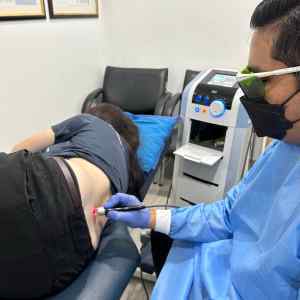
High-Intensity Laser Technology (HILT) is a non-invasive method designed to support soft tissue function and spinal mobility. This technique utilizes focused light energy to encourage targeted soft tissue support, promoting flexibility and movement.
Potential benefits of HILT methods include:
- Encouraging soft tissue flexibility– Supporting muscle and ligament function.
- Facilitating movement efficiency– Encouraging natural spinal mobility.
- Enhancing structural support– Supporting spinal flexibility over time.
Many individuals experiencing spinal discomfort, joint stiffness, or postural imbalances may benefit from structured movement-based rehabilitation programs that integrate targeted soft tissue support techniques.
For more details, contact our Bukit Damansara, Sri Petaling, or Bandar Sri Damansara centers.
Enhancing Spinal Care with Shockwave Technology
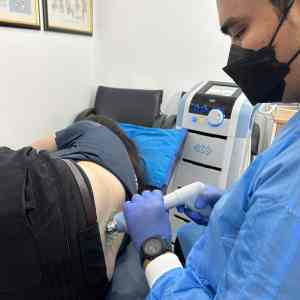
Shockwave technology is a structured, non-invasive technique designed to support spinal mobility and soft tissue function. This method utilizes targeted sound wave technology to encourage soft tissue flexibility and postural balance.
Potential benefits of shockwave methods include:
- Encouraging postural alignment– Supporting muscular relaxation and movement efficiency.
- Facilitating structural stability– Enhancing joint flexibility over time.
- Encouraging natural soft tissue recovery– Supporting long-term spinal mobility.
By integrating structured shockwave techniques, individuals may experience better movement, posture, and flexibility through targeted spinal care methods.
For further details, contact our Sri Petaling center at +603 9545 1200 or reach out via WhatsApp.
Comprehensive Spinal Support for Disc-Related Concerns in Kuala Lumpur
At Chiropractic Specialty Center®, we provide non-surgical spinal support tailored to help individuals experiencing disc-related movement limitations, postural imbalances, and spinal stiffness. Many individuals experience spinal disc changes over time, which may lead to reduced flexibility and movement efficiency if left unaddressed.
By taking early action, individuals can support long-term spinal mobility and posture through structured care programs. Our centers provide personalized spinal support designed to:
- Encourage joint flexibility– Supporting mobility and movement efficiency.
- Address disc-related concerns– Encouraging better spinal balance.
- Support postural alignment– Reducing muscular tightness and ligament imbalances.
For further details, contact our Sri Petaling center at +603 9545 1200.
Encouraging Early Spinal Care for Long-Term Mobility
Many individuals may experience gradual spinal changes over time, leading to reduced flexibility and movement restrictions. While minor movement limitations may not be noticeable at first, addressing early signs of spinal imbalances can help support long-term movement and posture.
Factors that may influence spinal disc health include:
- Postural adaptations– Uneven weight distribution may impact spinal function.
- Repetitive physical strain– Engaging in repetitive movements may affect mobility.
- Structural disc changes– Over time, spinal flexibility may naturally adapt.
By supporting spinal movement through structured care programs, individuals may experience better posture and joint flexibility.
Understanding Spinal Disc Changes and Their Effects on Movement
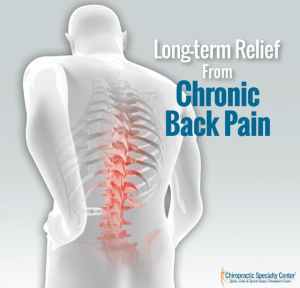
Spinal discs play a crucial role in absorbing movement pressure and supporting posture. Over time, lifestyle habits, repetitive movements, or prolonged sitting may contribute to structural adaptations within the discs. In some cases, individuals may experience movement restrictions before noticing changes in spinal function.
Some individuals may experience:
- Stiffness in the back or lower extremities– Gradual movement changes may affect posture.
- Reduced flexibility in the upper or lower body– Limited spinal mobility may impact movement efficiency.
- Sensations of tingling or discomfort in the limbs– Changes in spinal balance may affect muscular coordination.
By ensuring early detection of movement restrictions, individuals can support spinal flexibility and mobility.
For further details, contact our Sri Petaling center at +603 9545 1200.
Can Leg Discomfort Be Linked to Spinal Changes, Even Without Back Symptoms?
Many individuals experience leg discomfort, tingling, or reduced mobility without noticeable back issues. While there may be no direct spinal discomfort, underlying spinal imbalances may still influence nerve function. The spine serves as the central support structure, and nerve pathways originating from the spine extend into the legs. When spinal mobility is affected, individuals may experience sensations in the lower extremities.
Some factors that may contribute to leg discomfort associated with spinal concerns include:
- Disc-related changes– Structural adaptations within spinal discs may impact movement.
- Postural imbalances– Uneven spinal alignment may influence muscular coordination.
- Joint stiffness– Reduced spinal flexibility may affect mobility efficiency.
- Soft tissue tension– Ligament or muscular tightness may contribute to movement restrictions.
By addressing spinal function and posture, individuals may encourage better mobility and coordination over time.
For further details, contact our Sri Petaling center at +603 9545 1200.
Identifying Spinal Changes That May Influence Movement
Many individuals may not experience direct spinal discomfort even when underlying changes occur. Some individuals with spinal adaptations or postural imbalances may notice movement restrictions before experiencing noticeable spinal concerns.
Some structural changes that may influence leg movement and coordination include:
- Disc-related concerns– Slipped discs may contribute to movement imbalances.
- Joint stiffness– Limited flexibility in spinal joints may impact posture.
- Postural misalignments– Uneven spinal positioning may influence movement coordination.
- Soft tissue tightness– Ligament or muscular adaptations may affect flexibility.
Addressing early signs of movement imbalances can help support long-term posture and mobility.
Non-Surgical Spinal Decompression for Structured Spinal Support
At Chiropractic Specialty Center®, we utilize structured spinal decompression techniques to support spinal mobility and soft tissue function. Our centers integrate RxDecom® technology, a non-surgical method designed to support postural alignment and movement balance.
The RxDecom® process focuses on:
- Encouraging spinal decompression– Supporting joint flexibility and movement coordination.
- Facilitating postural stability– Encouraging better spinal balance.
- Enhancing soft tissue function– Supporting muscular relaxation and ligament mobility.
- Encouraging nutrient diffusion– Supporting spinal disc health over time.
By integrating structured spinal decompression techniques, individuals may support long-term movement efficiency and spinal stability.
For further details, contact our Sri Petaling center at +603 9545 1200 or reach out via WhatsApp.
Non-Surgical Support for Spinal Disc Concerns in Kuala Lumpur
Many individuals experiencing spinal disc changes, postural imbalances, or movement restrictions may benefit from non-surgical spinal support. At Chiropractic Specialty Center®, we integrate structured spinal care programs to support posture, flexibility, and movement efficiency using non-invasive methods.
By utilizing targeted spinal decompression techniques, individuals may experience improved movement, postural stability, and flexibility over time. Our centers integrate RxDecom® technology as part of a structured approach to supporting spinal mobility.
For further details, contact our Sri Petaling center at +603 9545 1200.
Encouraging Early Spinal Support for Long-Term Mobility
Many individuals may experience gradual spinal changes over time, leading to movement restrictions and reduced postural efficiency. By addressing early movement imbalances, individuals can encourage better flexibility and posture through structured care programs.
Our team integrates chiropractic techniques, physiotherapy, and movement-based rehabilitation to provide a structured, non-surgical approach to spinal mobility. Some of the areas we focus on include:
- Encouraging spinal decompression– Supporting spinal flexibility through targeted movement methods.
- Facilitating postural balance– Encouraging even weight distribution across the spine.
- Enhancing joint flexibility– Supporting mobility and movement efficiency.
By incorporating structured spinal decompression techniques, individuals can encourage long-term spinal well-being.
For further details, contact our Bukit Damansara, Sri Petaling, or Bandar Sri Damansara centers.
Non-Surgical Spinal Decompression for Targeted Spinal Support
At Chiropractic Specialty Center®, we integrate non-invasive spinal decompression techniques to support spinal mobility and soft tissue function. Our centers utilize RxDecom® technology, a structured decompression method designed to support postural alignment and movement balance.
The RxDecom® process focuses on:
- Encouraging postural alignment– Supporting joint flexibility and movement coordination.
- Enhancing spinal stability– Encouraging better postural balance.
- Facilitating soft tissue support– Supporting muscular relaxation and ligament mobility.
- Encouraging nutrient diffusion– Supporting spinal disc health over time.
By integrating structured spinal decompression techniques, individuals may support long-term movement efficiency and spinal stability through non-surgical methods.
For further details, contact our Sri Petaling center at +603 9545 1200 or reach out via WhatsApp.
Share with others:
